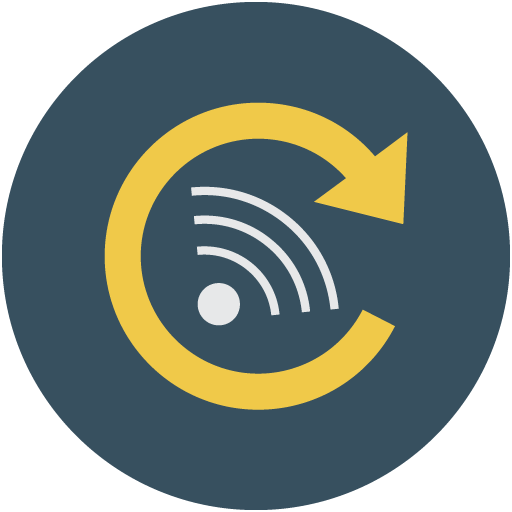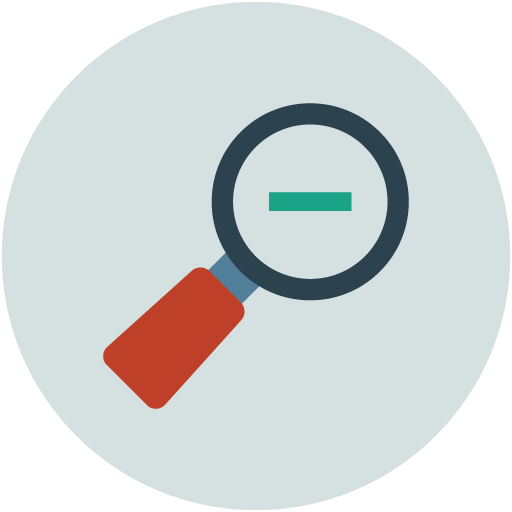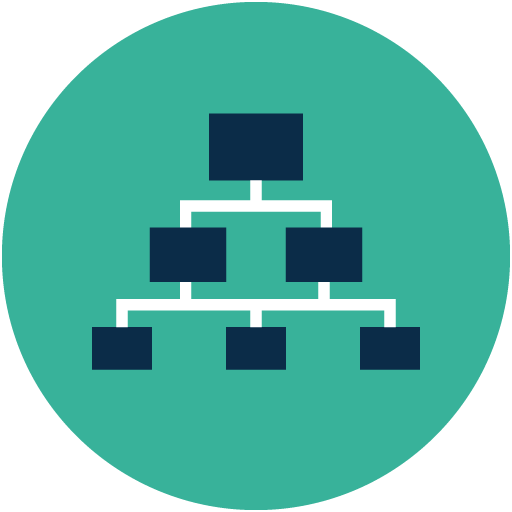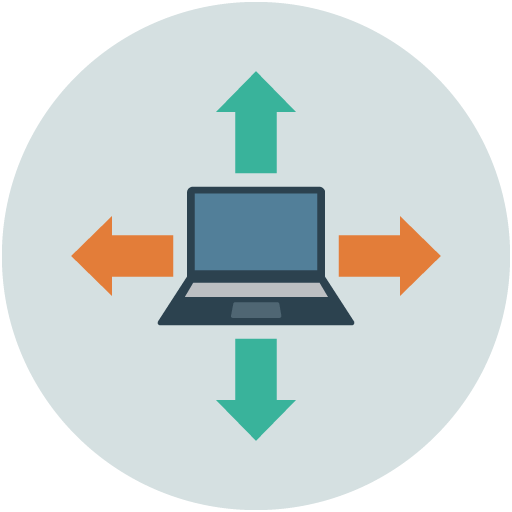Publications
THE WALL STREET JOURNAL

Looking for Diablogue?
I’m consolidating blogs: in future you can find my posts about civic engagement, online dialogue and related topics on Otherwise Engaged.

Technorati previews tag feeds
The beta Technorati makeover is now online and hurrah! it includes RSS feeds for tag pages. These feeds will make it much easier for people to aggregate blog-related content from across the web by subscribing to a particular tag feed — either within a newsreader like Bloglines or for republishing on a web site […]

YASBoS: Jots
Beth Kanter has added a great gnomz cartoon to our bloggespondence (Rob, please add this to your Lexicon for the New Millennium) on del.icio.us and social bookmarking. Beth's latest post on the subject pointed me to Jots, yet another social bookmarking site (OK, lets...

How to raise a gay-friendly child
Jennifer Gerarda Brown has posted a great set of tips on how to raise a gay-friendly child on the Lessig blog. A nice e.g. of the strong respect for civil rights that fits well with Lessig-style cyberpolitics.

Conference on Social Capital & ICTs
The European Social Capital, Quality of Life & Information Society Technologies project (SOCQUIT) is holding a 2-day conference in Paris (!) this September. The conference will reviw the results of SOQUIT’s research into the impact of IT on social capital, which focuses particularly on work and employment, aging population, local initiatives and migrants. For […]

del.icio.us: from good to great
Beth Kanter checked out my post on del.icio.us taxonomies, and asked me to say more about why I choose to use del.icio.us in the first place. The big reason for sticking with del.icio.us is that it really puts the "social" in social bookmarking. Del.icio.us makes it...

Event tagging
Carolyn Minor, a librarian at the University of Winnipeg, has put out a call for help on event tagging. She’s noted the difficulties in setting up effective tagging for event blogs, which is something I struggled with myself in setting up the event blog for the 2005 Online Deliberation conference.
The main problem I ran […]

Tag blogging @ tagsonomy.com
As of today I'm moving some of my tag-related musings to You're It, a blog on tagging that includes such venerable folksonomists as Jon Lebkowsky, Clay Shirky and Dave Weinberger. Rob hopes that this new outlet means that I'll finally stop talking about tagging in...

Introduction for Alexandra Samuel
I’m Alexandra Samuel. I run Dialogue Networks, a consulting practice that specializes in online dialogue and public engagement. This work has spurred my tagging explorations in a few ways. It began as a practical challenge of managing bookmaks across multiple machines and platforms. But it didn’t take long to jump from personal value to […]

BC Goes DC
The BC Citizens’ Assembly is taking its experience on the road. The New America Foundation is hosting a discussion next week titled Can the U.S. Take Lessons from a Canadian Experiment in Democracy?. It will be held Tuesday, June 7 at 3:30 PM at the New America Foundation, 1630 Connecticut Ave, 7th Floor, Washington DC. […]
The Harvard Business Review

Looking for Diablogue?
I’m consolidating blogs: in future you can find my posts about civic engagement, online dialogue and related topics on Otherwise Engaged.

Technorati previews tag feeds
The beta Technorati makeover is now online and hurrah! it includes RSS feeds for tag pages. These feeds will make it much easier for people to aggregate blog-related content from across the web by subscribing to a particular tag feed — either within a newsreader like Bloglines or for republishing on a web site […]

YASBoS: Jots
Beth Kanter has added a great gnomz cartoon to our bloggespondence (Rob, please add this to your Lexicon for the New Millennium) on del.icio.us and social bookmarking. Beth's latest post on the subject pointed me to Jots, yet another social bookmarking site (OK, lets...

How to raise a gay-friendly child
Jennifer Gerarda Brown has posted a great set of tips on how to raise a gay-friendly child on the Lessig blog. A nice e.g. of the strong respect for civil rights that fits well with Lessig-style cyberpolitics.

Conference on Social Capital & ICTs
The European Social Capital, Quality of Life & Information Society Technologies project (SOCQUIT) is holding a 2-day conference in Paris (!) this September. The conference will reviw the results of SOQUIT’s research into the impact of IT on social capital, which focuses particularly on work and employment, aging population, local initiatives and migrants. For […]

del.icio.us: from good to great
Beth Kanter checked out my post on del.icio.us taxonomies, and asked me to say more about why I choose to use del.icio.us in the first place. The big reason for sticking with del.icio.us is that it really puts the "social" in social bookmarking. Del.icio.us makes it...

Event tagging
Carolyn Minor, a librarian at the University of Winnipeg, has put out a call for help on event tagging. She’s noted the difficulties in setting up effective tagging for event blogs, which is something I struggled with myself in setting up the event blog for the 2005 Online Deliberation conference.
The main problem I ran […]

Tag blogging @ tagsonomy.com
As of today I'm moving some of my tag-related musings to You're It, a blog on tagging that includes such venerable folksonomists as Jon Lebkowsky, Clay Shirky and Dave Weinberger. Rob hopes that this new outlet means that I'll finally stop talking about tagging in...

Introduction for Alexandra Samuel
I’m Alexandra Samuel. I run Dialogue Networks, a consulting practice that specializes in online dialogue and public engagement. This work has spurred my tagging explorations in a few ways. It began as a practical challenge of managing bookmaks across multiple machines and platforms. But it didn’t take long to jump from personal value to […]

BC Goes DC
The BC Citizens’ Assembly is taking its experience on the road. The New America Foundation is hosting a discussion next week titled Can the U.S. Take Lessons from a Canadian Experiment in Democracy?. It will be held Tuesday, June 7 at 3:30 PM at the New America Foundation, 1630 Connecticut Ave, 7th Floor, Washington DC. […]
OneZero

Bringing your online community to life
Building an online community is just the first step. Here are my tips on bringing your online community to life.

Free tix to Sex and The City…and some help for sex trade workers
Today marks the release of Sex and the City: The Movie. With the news that SATCTM tix are selling out, your friends at Social Signal (part of the original Change Everything team) want to save you from the nightmare of a Sex-less weekend. We’ve got twenty tickets to the 8 pm show on Saturday, May 31st, at the Fifth Avenue Cinema on Burrard Street.
The first twenty girlfriends to e-mail me (alex [at] socialsignal [dot] com) will be our guests on Saturday night. We’re also working on a plan for pre- or post-film cosmos (let us know what works better for you when you RSVP).
If you’d like to pass on the love, Social Signal will match any ticket-sized donations you make to WISH, the Women’s Information Safe Haven.WISH provides female survival sex workers with shelter, essential needs supports, and alternatives to their high-risk lifestyles. You can donate online or in person on Saturday night.
We hope to see you on Saturday!

See Sex and the City with your friends at Social Signal
Today marks the release of Sex and the City: The Movie. With the news that SATCTM tix are selling out, your friends at Social Signal want to save you from the nightmare of a Sex-less weekend. We've got twenty tickets to the 8 pm show on Saturday, May 31st, at the Fifth Avenue Cinema on Burrard Street.
The first twenty Social Signal girlfriends to e-mail me (alex [at] socialsignal [dot] com) will be our guests on Saturday night. We're also working on a plan for pre- or post-film cosmos (let us know what works better for you when you RSVP).
If you'd like to pass on the love, Social Signal will match any ticket-sized donations you make to WISH, the Women's Information Safe Haven. WISH provides female survival sex workers with shelter, essential needs supports, and alternatives to their high-risk lifestyles. You can donate online or in person on Saturday night.
We hope to see you on Saturday!

Mary Robinson on media freedom
The Elders' Every Human Has Rights campaign has just relaunched its site (on Drupal!) We've been privileged to work with the EHHR team in telling the story of the Universal Declaration of Human Rights online. For a great snapshot of why the UDHR matters, check out the great PSA featuring Mary Robinson on media freedom.

Fighting lice in Vancouver
We knew this day would come. Lice...yuck! As we struggle to contain the lice outbreak on our kids' heads, we share the following resources and insights: Think carefully before using pharmaceutical lice remedies like Nix. They are based on a natural derivative from...

Every Human Has Rights makes human rights personal
For the past two months, I've been part of the digital strategy team for The Elders, an extraordinary NGO that was launched last year by Richard Branson and Peter Gabriel. The vision is to convene a council of elders for the global village; the founding elders include Desmond Tutu, Aung San Suu Kyi, Mary Robinson and Kofi Annan.
As part of this work, I've been supporting the web team for Every Human Has Rights, a campaign to spread awareness and support for the Universal Declaration of Human Rights. This year is the sixtieth anniversary of UDHR, and being part of its celebration is a wonderful echo of one of the first pieces of work I did as a grad student at Harvard, thirteen years ago. (Ouch!) At that time I was a research assistant for Andrew Moravcsik, helping him research an article on international human rights regimes (PDF) that he published in time to mark the fiftieth anniversary of the UDHR.
Moravcsik's article focused particularly on the creation of the European Convention for the Protection of Human Rights and Fundamental Freedoms (ECHR), which, unlike the UNDHR, was designed to be an enforceable document that would give individuals the legal standing to pursue human rights issues in an international court of law. What the ECHR advanced was the idea of personal, individual-level responsibility for human rights advocacy; what it lost was the boldness and breadth of vision of the UDHR.
The EHHR project recognizes that online networks provide a way to have your human rights cake, and eat it too. EHHR is focusing on each of the core themes of the UN Declaration, a sweeping document that addresses basic rights in areas from religion to employement, and from freedom of expression to healthcare. But by asking people around the world to sign on personally — over the web — as supporters of that Declaration, it's reawakening the idea that each and every one of us has a role to play in supporting human rights.
And that role doesn't need to be limited to a courtroom. One of the key partners on the EHHR project is Witness, an online NGO that uses video and web technology to tackle human rights abuses around the world. Through EHHR and Witness's user-driven site, The Hub, anyone in the world can be an active advocate for human rights — a personal witness — by contributing a video or online story.
EHHR and Witness are just two pieces of a large and growing online ecosystem for supporting human rights worldwide. Global Voices Online gathers bloggers from around the world, including many who are writing under adverse — even life-threatening — conditions in their home countries. Ushahidi and the Tunisian Prison Map are putting human rights abuses in Kenya and Tunisia on the map (literally). The Martus project provides digital security tools to protect the effectiveness and safety of people working on the front lines of human rights protection.
The growing online human rights ecosystem of which EHHR is a part didn't exist when Moravcsik wrote his article. At the time, the courts were the best option — really, the only meaningful option — for individuals to engage in the public sphere of human rights. What made that interesting to Moravcsik was the way that human rights agreements allowed governments to dig themselves into structural commitments to human rights, with citizens serving as the hypothetical watchdogs.
Today there's a whole new set of tools to give those hypothetical watchdogs real teeth. But now, citizens don't have to wait to be invited into that role, nor do they have to find their way into a courtroom. They just have to pick up a cell phone, a camera, or a keyboard, and they can hold human rights violations accountable in the court of global public opinion.
The technologies are all there….all that's missing is the recognition of meaningful personal accountability for human rights. That's what EHHR puts back in the picture, by asking and every one of us to sign a personal commitment to the bold vision the UN set forth sixty years ago.
Of course, when the Declaration was written, most UN members would not have envisioned a world in which access to global communications could be virtually universal. Now that we have it, it's time to make human rights universal, too.

How your non-profit can earn revenue with Web 2.0: Part 5 – Product sales
What bake sales once were to PTAs, online storefronts are to today's non-profits. We're used to thinking about participants in non-profit web sites as members or supporters, people we are trying to reach with a message or mobilize around a campaign. But your online community members can also be customers — customers who may be delighted to spend their dollars in a way that supports their values and your work.

A mathemetician, a librarian, and a web strategist walk into a bar…
The power of Boolean logic, coming soon to a sentence near you.
JSTOR DAILY

Bringing your online community to life
Building an online community is just the first step. Here are my tips on bringing your online community to life.

Free tix to Sex and The City…and some help for sex trade workers
Today marks the release of Sex and the City: The Movie. With the news that SATCTM tix are selling out, your friends at Social Signal (part of the original Change Everything team) want to save you from the nightmare of a Sex-less weekend. We’ve got twenty tickets to the 8 pm show on Saturday, May 31st, at the Fifth Avenue Cinema on Burrard Street.
The first twenty girlfriends to e-mail me (alex [at] socialsignal [dot] com) will be our guests on Saturday night. We’re also working on a plan for pre- or post-film cosmos (let us know what works better for you when you RSVP).
If you’d like to pass on the love, Social Signal will match any ticket-sized donations you make to WISH, the Women’s Information Safe Haven.WISH provides female survival sex workers with shelter, essential needs supports, and alternatives to their high-risk lifestyles. You can donate online or in person on Saturday night.
We hope to see you on Saturday!

See Sex and the City with your friends at Social Signal
Today marks the release of Sex and the City: The Movie. With the news that SATCTM tix are selling out, your friends at Social Signal want to save you from the nightmare of a Sex-less weekend. We've got twenty tickets to the 8 pm show on Saturday, May 31st, at the Fifth Avenue Cinema on Burrard Street.
The first twenty Social Signal girlfriends to e-mail me (alex [at] socialsignal [dot] com) will be our guests on Saturday night. We're also working on a plan for pre- or post-film cosmos (let us know what works better for you when you RSVP).
If you'd like to pass on the love, Social Signal will match any ticket-sized donations you make to WISH, the Women's Information Safe Haven. WISH provides female survival sex workers with shelter, essential needs supports, and alternatives to their high-risk lifestyles. You can donate online or in person on Saturday night.
We hope to see you on Saturday!

Mary Robinson on media freedom
The Elders' Every Human Has Rights campaign has just relaunched its site (on Drupal!) We've been privileged to work with the EHHR team in telling the story of the Universal Declaration of Human Rights online. For a great snapshot of why the UDHR matters, check out the great PSA featuring Mary Robinson on media freedom.

Fighting lice in Vancouver
We knew this day would come. Lice...yuck! As we struggle to contain the lice outbreak on our kids' heads, we share the following resources and insights: Think carefully before using pharmaceutical lice remedies like Nix. They are based on a natural derivative from...

Every Human Has Rights makes human rights personal
For the past two months, I've been part of the digital strategy team for The Elders, an extraordinary NGO that was launched last year by Richard Branson and Peter Gabriel. The vision is to convene a council of elders for the global village; the founding elders include Desmond Tutu, Aung San Suu Kyi, Mary Robinson and Kofi Annan.
As part of this work, I've been supporting the web team for Every Human Has Rights, a campaign to spread awareness and support for the Universal Declaration of Human Rights. This year is the sixtieth anniversary of UDHR, and being part of its celebration is a wonderful echo of one of the first pieces of work I did as a grad student at Harvard, thirteen years ago. (Ouch!) At that time I was a research assistant for Andrew Moravcsik, helping him research an article on international human rights regimes (PDF) that he published in time to mark the fiftieth anniversary of the UDHR.
Moravcsik's article focused particularly on the creation of the European Convention for the Protection of Human Rights and Fundamental Freedoms (ECHR), which, unlike the UNDHR, was designed to be an enforceable document that would give individuals the legal standing to pursue human rights issues in an international court of law. What the ECHR advanced was the idea of personal, individual-level responsibility for human rights advocacy; what it lost was the boldness and breadth of vision of the UDHR.
The EHHR project recognizes that online networks provide a way to have your human rights cake, and eat it too. EHHR is focusing on each of the core themes of the UN Declaration, a sweeping document that addresses basic rights in areas from religion to employement, and from freedom of expression to healthcare. But by asking people around the world to sign on personally — over the web — as supporters of that Declaration, it's reawakening the idea that each and every one of us has a role to play in supporting human rights.
And that role doesn't need to be limited to a courtroom. One of the key partners on the EHHR project is Witness, an online NGO that uses video and web technology to tackle human rights abuses around the world. Through EHHR and Witness's user-driven site, The Hub, anyone in the world can be an active advocate for human rights — a personal witness — by contributing a video or online story.
EHHR and Witness are just two pieces of a large and growing online ecosystem for supporting human rights worldwide. Global Voices Online gathers bloggers from around the world, including many who are writing under adverse — even life-threatening — conditions in their home countries. Ushahidi and the Tunisian Prison Map are putting human rights abuses in Kenya and Tunisia on the map (literally). The Martus project provides digital security tools to protect the effectiveness and safety of people working on the front lines of human rights protection.
The growing online human rights ecosystem of which EHHR is a part didn't exist when Moravcsik wrote his article. At the time, the courts were the best option — really, the only meaningful option — for individuals to engage in the public sphere of human rights. What made that interesting to Moravcsik was the way that human rights agreements allowed governments to dig themselves into structural commitments to human rights, with citizens serving as the hypothetical watchdogs.
Today there's a whole new set of tools to give those hypothetical watchdogs real teeth. But now, citizens don't have to wait to be invited into that role, nor do they have to find their way into a courtroom. They just have to pick up a cell phone, a camera, or a keyboard, and they can hold human rights violations accountable in the court of global public opinion.
The technologies are all there….all that's missing is the recognition of meaningful personal accountability for human rights. That's what EHHR puts back in the picture, by asking and every one of us to sign a personal commitment to the bold vision the UN set forth sixty years ago.
Of course, when the Declaration was written, most UN members would not have envisioned a world in which access to global communications could be virtually universal. Now that we have it, it's time to make human rights universal, too.

How your non-profit can earn revenue with Web 2.0: Part 5 – Product sales
What bake sales once were to PTAs, online storefronts are to today's non-profits. We're used to thinking about participants in non-profit web sites as members or supporters, people we are trying to reach with a message or mobilize around a campaign. But your online community members can also be customers — customers who may be delighted to spend their dollars in a way that supports their values and your work.

A mathemetician, a librarian, and a web strategist walk into a bar…
The power of Boolean logic, coming soon to a sentence near you.
THE VERGE

Are you using the Internet to monetize or to enlighten?

Blacksburg reminds us how to worry about our kids

What you choose when you choose a network
When I went to work for the Rae government, I thought the choice of which computer to use was a choice of Mac vs PC. But what I was really choosing was a connection to a group of people who would change my life, and the future of our country.

